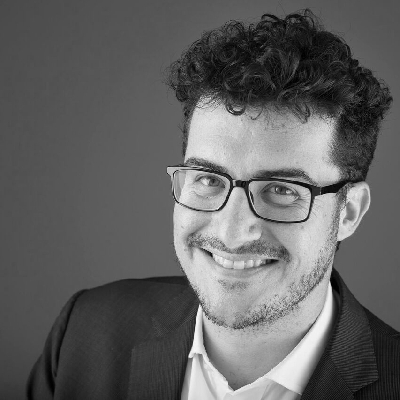This article is also available in Italian / Questo articolo è disponibile anche in italiano
The book Merchants of Doubt, written by Naomi Oreskes and Erik Conway, remains highly relevant even 15 years after its publication. It highlights the persistent issue of climate negationism, corporate control of science, and the spread of misinformation connected to the rise of a new era of libertarian free market. Despite advancements in climate science and the reduction of uncertainties, the denial of climate change continues for political, ideological, and profit-driven reasons. Today Merchants of Doubt is still an essential read for understanding the ongoing challenges in addressing climate change, the ecological transition of the global economy and the importance of recognizing and combating disinformation. We met with Naomi Oreskes to assess how the book is more actual than ever, with the return of Donald Trump and big Oil at the White House and the assault on the Eu Green Deal.
15 years have passed since the publication of Merchant of Doubt. Climate negationism is on the rise, corporate control of science is widespread more than ever, free-market individualistic narratives are flooding mass and social media while misinformation is at pandemic level. You predicted it all.
Very little has changed since the first edition of the book. That's why this book is still relevant in a way that I and Erik wish it weren't and frankly would never have imagined. I remember having a conversation with Erik in which we said, "if the Obama administration really acts on climate change, then this book will just be of historic interest, useful at least to explain the delay on acting on climate change occurred from 1992, with the signing of the UN Framework Convention on Climate Change, until the Obama era". But even in our worst nightmares, we never imagined that we would be here, 15 years later, with a situation as bad or even worse than 2010.
While some of the climate negationists-in-chief widely analyzed in this book are dead, like Fred Singer disappeared in 2020, many institutions are active more than ever.
In the book there are four key players [Fred Singer, Robert Jastrow, William Nierenberg, and Frederick Seitz, AN], the merchants of doubt, all deceased now. But the institutions that they worked within, the mindsets that they represented, continue to live on, and particularly the Heritage Foundation, the first right wing libertarian foundations, primary architects of the Project 2025, which is now informing the new Trump administration and their whole deregulatory agenda to shrink and diminish the federal government. They are very active in undermine climate science and eliminate environmental market regulation, as we describe in our latest book, The Big Myth.
For a while the media, including myself I must admit, stopped talking about climate denialism, focusing on inactivism as proposed by some climatologists. I guess we have the denialist-in-chief at the White House now...
Another topic I feel sadly vindicated. Some years ago, quite a few people, including a lot of climate scientists, people I respect, were saying "nobody really denies climate change anymore. Delay is the new denial”. However, stopping greenhouse emission is a time-sensitive issue where if we delay action, we in effect, deny the clear scientific evidence of the urgency of the problem. Furthermore, a couple of years ago Jeffrey Supran, one of my postdocs, while tracking disinformation on the internet, found out that online there were still massive amounts of outright climate denial, a body of content that was growing day by day. So, while the fossil fuel industry, the men in the expensive three-piece suits were saying in public "we know that there's climate change and we're aligned with the Paris Agreement", in private they were doing the opposite.
And now, under the Trump administration outright denial is in full display.
This shows something that Erik and I have been arguing for more than 15 years: denialism was never about science. When we first started doing this work, many people in the scientific community falsely thought that this was about science and if they just explained the science more clearly, if they communicated better, they could ever stop denialism. They believed this was essentially a science communication problem. With Merchants of doubt, we tried to explain that these people are not doubting science because scientists use too many fancy words or too many climate models. They're denying science for political, ideological and profit motivated reasons. Doing more science won't solve the problem. 15 years later, science is unequivocal. The IPCC now uses the word unequivocal, which they would not have done many years ago. Most of the uncertainties have shrunk tremendously. What was predicted, it happened; the world has warmed up; Hurricanes are worse; Arctic summer ice is disappearing. And none of that has fundamentally changed the position of climate change deniers.
What differences in narrative are you seeing today compared to 15 years ago? Is the same narrative of denialism?
In the domain of the fossil fuel industry, today everyone claims that they accept climate science, they are Paris-aligned, and they claim, "we want to be part of the solution". But it's a deeply misleading narrative because the fossil fuel industry continues to develop new oil and gas fields. And if you look at their efforts at things that they claim are solutions – like carbon capture and storage – they constitute a tiny fraction of their overall business model, solutions that can be profitable only with tax credits and public subsidies. In other quarters we have seen a resurgence of the narrative about the limitation of freedom. One of the things the tobacco industry did back in the 1990s, when it had been proven beyond any reasonable doubt that using tobacco killed people, they shifted the narrative to the freedom to smoke. Does not matter whether tobacco does or doesn't cause cancer: it is about freedom. This is about your right to decide for yourself how you want to live your life. A super clever move because who doesn't believe in freedom? Now we have seen that argument picked up a lot by the fossil fuel industry in recent years. In New York State, when the state tried to pass a new building code regulation to prevent gas in new homes, suddenly it was about energy freedom.
In Europe as well they use the same argument about cars. Citizens opposed the regulation, citing the freedom of choosing which car to drive, gas or electric.
And meat! As more attention has been paid to the role of animal agriculture in driving climate change, something that people weren't talking about so much 20 years ago, now we see the alt-right and the beef industry talking about your freedom to eat hamburgers. Those climate scientists, they want to take away your hamburgers. They want to take away your freedom to drive a car. So, we're seeing this freedom narrative being picked up again.
It us the big come back of the absolute free market
During the first week of the Trump administration Elon Musk was quoted about the necessity to get rid of all regulations. He wants to be free to do whatever he pleases and make as much money as possible. Within days of the inauguration, the tech industry, which previously had had all these DEI initiatives, net-zero initiatives, content moderation initiatives, throw them all out the window. This is a new front of science denialism. We gave free range to do as they want, while we have increasing scientific evidence that some forms of social media, AI and technology use are doing serious harm, particularly to young people. That's a textbook case of where government regulation is appropriate and how tech industries oppose it. Same as for the ecological transition.
Free market is the key topic of your latest book, The Big Myth
In the new book we talk quite a bit about the free market. And we focus on the history of antitrust, how antitrust statutes were developed and how history showed that unregulated capitalism wasn't even good for capitalism. In fact, if you leave markets alone, very often they degenerate into monopolies. The Sherman Antitrust Act in the United States, followed by the Clayton Antitrust Act and then similar statutes in Europe, basically gave the government the right to intervene in markets to prevent monopolies and monopolistic, anti-competitive practices. And when the Sherman Antitrust Act was passed, John Sherman, the chief author of the statute, said two things. First, antitrust protects competition so capitalism can operate as it should. Second, concentration of market share led to concentrations of wealth which distort democracy. And now history is repeating itself. We are seeing concentrations of gigantic wealth by tech and energy companies that want to get rid of any limitation like environmental regulations.
How can we fight back denialism and the excess of free market large scale deregulation?
One of the things that happens in history is that we unlearn and forget the lessons of history. We persuade ourselves saying “that was then and this is now”. In the Big Myth me and Erik Conway we analyze how in the late 19th century people came to understand that markets had to be regulated. The push came from the impact of anti-competitive practices that lead to monopolies that distorted government and democracy, with huge social and environmental costs, bearing child labor, lack of worker's right, environmental devastation. Then labor and environmental laws came by, but the business community never liked it. However, until Ronald Reagan and Magaret Thatcher, the state was able to set regulations. In the meanwhile, big business spent billions to fund academics, propaganda, writing books, newsletters, radio programs, television shows, children's books, to persuade us that we didn't need regulation of the marketplace and that we could just trust the free market to do its magic.
While we are recording this interview whole institutions – not just regulations – are under attack by the Trump Administration: the US Environmental Protection Agency, the NOAA, National Oceanic and Atmospheric Administration. Climate date has been deleted, research program cancelled, biodiversity assessment erased. How much should we be worried by the Trump administration?
It really does depend on whether Donald Trump is president for four years or whether he changes the Constitution and runs for another term. We've seen how the Republican Party is capitulating on a wide range of constitutional issues. It will come down on how the judiciary and the legislative power will contain all kinds of things he is doing right now, some outright illegal.
We are also seeing a full force attack on UN institutions. Which role does denialism of science play in undermining the legitimacy of international institutions, agencies and frameworks such as the WHO, UNFCCC or UNEP?
In Merchants of Doubt, one of the things we talk about is how much these people hate the U.N. because it's tied up with their radically individualistic notion of freedom. Their hatred of communism and socialism is tied up with their commitment to radical individualism. And so therefore they resent anything that they see as taking power and agency away from an individual. And the farther that thing is from the individual, the more they hate it. So, in general, they tend not to be too hostile towards local, regional or state. They tend to hate the federal government (or the European Union) and they hate the U.N. most of all. And they hate the notion of international governance because they see it as an abdication of freedom and agency. Sometimes this might be even right, but rather than reform the UN they want to obliterate it completely. This is what free market uber-individualism does. And it is scary.
Cover: Naomi Oreskes



